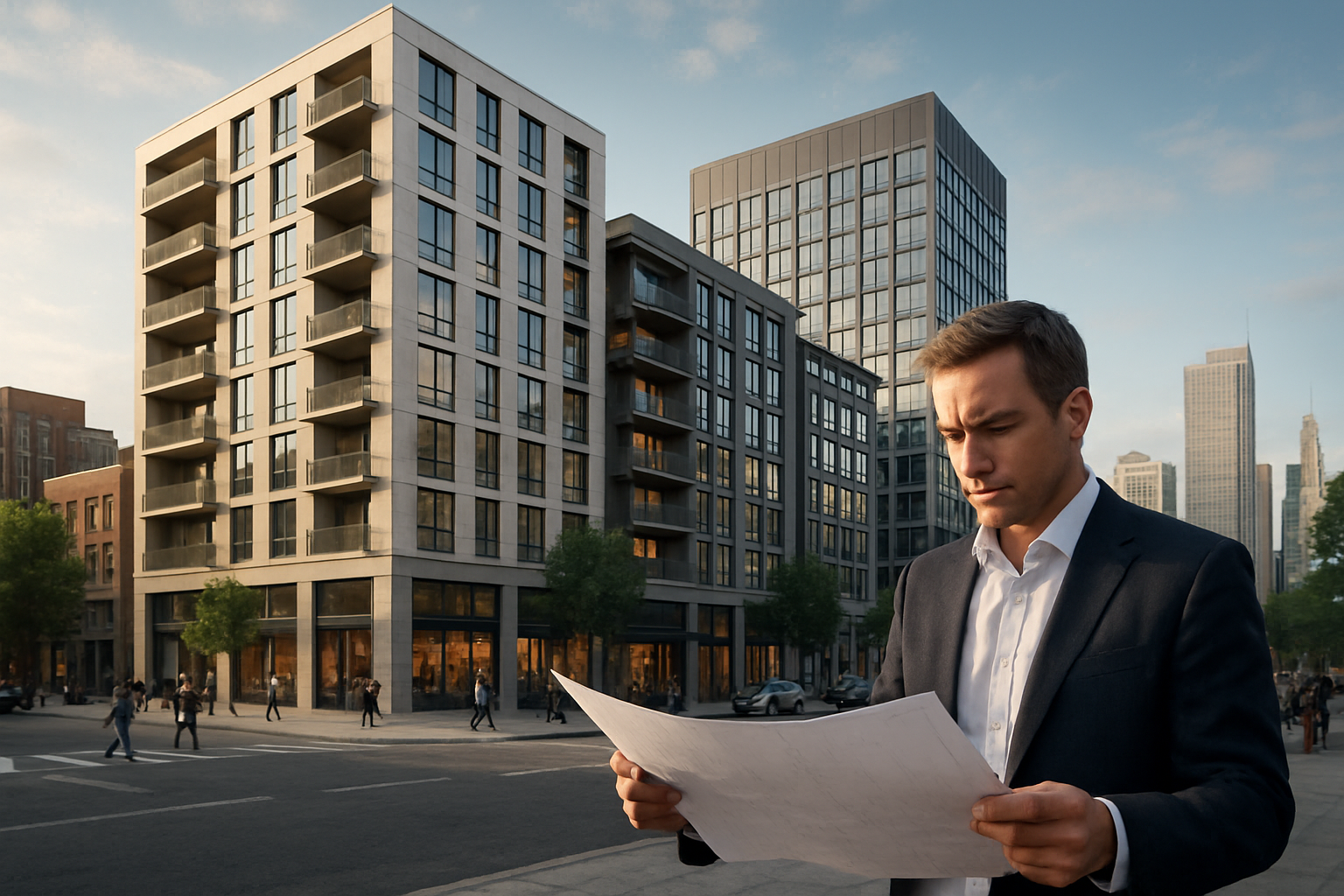Zoning Flexibility: The New Frontier in Urban Real Estate Development
The landscape of urban real estate is undergoing a quiet yet profound transformation. At the heart of this change lies a concept that's reshaping cityscapes and redefining property values: zoning flexibility. This innovative approach to urban planning is opening up new possibilities for developers, investors, and homeowners alike, promising to revolutionize how we think about and utilize urban spaces.

The Emergence of Flexible Zoning
Flexible zoning, also known as form-based zoning or mixed-use zoning, represents a paradigm shift in urban planning. Unlike traditional zoning, which focuses on separating different types of land use, flexible zoning emphasizes the physical form of buildings and their relationship to the street and surrounding structures. This approach allows for a more diverse mix of uses within the same area, promoting vibrant, walkable neighborhoods that blend residential, commercial, and even light industrial activities.
Economic Implications for Real Estate Investors
For real estate investors, the shift towards flexible zoning presents both opportunities and challenges. On one hand, it opens up new possibilities for property development and redevelopment. Mixed-use properties, which combine residential units with retail spaces or offices, are becoming increasingly valuable in urban areas. These properties often command higher rents and sale prices due to their versatility and appeal to modern urban dwellers seeking convenience and community.
Impact on Property Values and Urban Revitalization
Flexible zoning has shown promising results in revitalizing urban areas. By allowing for a mix of uses, it can breathe new life into formerly single-use neighborhoods. For instance, allowing residential units above ground-floor retail spaces can increase foot traffic, support local businesses, and create a more vibrant streetscape. This, in turn, can lead to increased property values across the neighborhood, benefiting both new developments and existing properties.
Challenges and Considerations for Developers
While flexible zoning offers numerous benefits, it also presents challenges for developers and city planners. One of the primary concerns is ensuring that new developments fit harmoniously within existing neighborhoods. This requires careful consideration of building scale, design, and functionality. Additionally, managing potential conflicts between different uses, such as noise from commercial activities affecting residential areas, requires thoughtful planning and community engagement.
The Role of Technology in Implementing Flexible Zoning
Advancements in technology are playing a crucial role in making flexible zoning more feasible and effective. Geographic Information Systems (GIS) and 3D modeling tools allow planners and developers to visualize and analyze the impact of proposed developments on the surrounding area. These technologies help in creating more informed and data-driven zoning decisions, ensuring that flexible zoning contributes positively to urban environments.
Case Studies: Success Stories in Flexible Zoning
Several cities around the world have successfully implemented flexible zoning policies, providing valuable insights for other urban areas. In Toronto, Canada, the King-Spadina neighborhood transformed from a declining industrial area into a vibrant mixed-use district through flexible zoning policies. This revitalization led to a significant increase in both residential and commercial property values, demonstrating the economic potential of this approach.
The Future of Urban Real Estate Under Flexible Zoning
As cities continue to evolve, flexible zoning is likely to play an increasingly important role in shaping urban real estate markets. This approach aligns well with current trends towards sustainable, walkable communities and the growing demand for live-work-play environments. For real estate professionals, understanding and leveraging flexible zoning policies will be crucial in identifying future investment opportunities and developing successful properties in urban areas.
Adapting to the New Zoning Paradigm
For real estate investors and developers looking to capitalize on the opportunities presented by flexible zoning, staying informed about local zoning changes and community needs is essential. Building relationships with city planners, engaging with local communities, and being willing to innovate in property design and use will be key to success in this new urban landscape.
Embracing the Flexibility for Future Growth
Flexible zoning represents a significant shift in how we approach urban development and real estate. By allowing for more diverse and integrated land use, it offers the potential to create more vibrant, sustainable, and economically resilient cities. For those in the real estate industry, understanding and embracing this new paradigm will be crucial in navigating the urban markets of the future. As cities continue to grow and evolve, flexible zoning may well be the key to unlocking new value in urban real estate.






